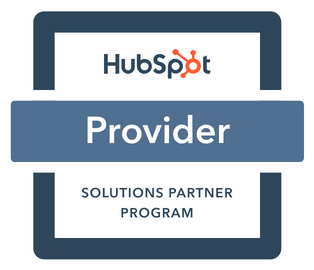In the ever-evolving landscape of digital marketing, paid search advertising remains a powerful tool for businesses looking to enhance their online presence and drive targeted traffic to their websites. However, merely launching a paid search campaign is not enough. Continuous monitoring and optimisation are critical to ensure the effectiveness and efficiency of your advertising efforts. In this blog, we will delve into the importance of monitoring paid search and offer insights on how to optimise your campaigns for maximum return on investment (ROI).
Table of Contents
Understanding Paid Search Advertising
Paid search advertising, commonly known as pay-per-click (PPC) advertising, involves bidding on keywords relevant to your business. When users search for these keywords, your ad appears at the top or bottom of the search engine results page (SERP). Each time a user clicks on your ad, you pay a fee to the search engine. The goal is to drive traffic to your website and convert these visitors into customers.
The Importance of Monitoring Paid Search Campaigns
Maximise ROI
Monitoring your paid search campaigns helps you understand which keywords, ads, and landing pages are performing well and which are not. By analysing these metrics, you can allocate your budget more effectively, focusing on high-performing elements and reducing spend on underperforming ones. This ensures you get the best possible return on your investment.
Identify and Rectify Issues
Regular monitoring allows you to spot issues early. For instance, if a particular ad has a high click-through rate (CTR) but a low conversion rate, it may indicate that the ad is misleading or that the landing page needs improvement. Identifying and addressing such issues promptly can save you from wasting budget and missing out on potential conversions.
Adapt to Market Changes
The digital market is dynamic, with consumer behaviour and search trends constantly evolving. Monitoring your paid search campaigns enables you to stay ahead of these changes. By keeping an eye on emerging trends and adjusting your keywords and ad copy accordingly, you can maintain relevance and ensure your ads continue to attract and convert your target audience.
Competitor Analysis
Monitoring your campaigns also involves keeping an eye on your competitors. Understanding their strategies, such as the keywords they are bidding on and the type of ads they are running, can provide valuable insights. You can leverage this information to refine your own strategies and gain a competitive edge.
Improve Quality Score
Search engines assign a Quality Score to your ads based on their relevance and performance. A higher Quality Score can lead to lower costs per click and better ad positions. By monitoring and optimising your campaigns, you can improve your Quality Score, making your ads more cost-effective and impactful.
Tips for Optimising Your Paid Search Campaigns
Keyword Management
Regularly review and update your keyword list. Add new relevant keywords, remove underperforming ones, and consider negative keywords to prevent your ads from showing up in irrelevant searches. Tools like Google Keyword Planner can help you find new opportunities.
A/B Testing
Conduct A/B tests on your ad copy, headlines, and calls-to-action (CTAs) to determine what resonates best with your audience. Testing different variations allows you to identify the most effective elements and optimise your ads accordingly.
Refine Ad Copy and Landing Pages
Ensure your ad copy is compelling and directly related to the keywords you are targeting. Additionally, your landing pages should provide a seamless experience, matching the ad’s promise and guiding the user towards conversion.
Monitor and Adjust Bids
Regularly review your bidding strategy. Increase bids on high-performing keywords to maximise their potential, and decrease bids or pause low-performing keywords to conserve budget. Automated bidding strategies offered by platforms like Google Ads can also help optimise bids based on your goals.
Utilise Ad Extensions
Ad extensions provide additional information and can improve your ad’s visibility and CTR. Use extensions like sitelinks, callouts, and structured snippets to enhance your ads and provide more value to potential customers.
Conclusion
Monitoring and optimising your paid search campaigns is not a one-time task but an ongoing process. By staying vigilant and proactive, you can ensure that your advertising efforts are continually refined, maximising your ROI and driving meaningful results for your business. Embrace the dynamic nature of digital marketing, and let data-driven insights guide your strategy to achieve sustained success in your paid search endeavours.




